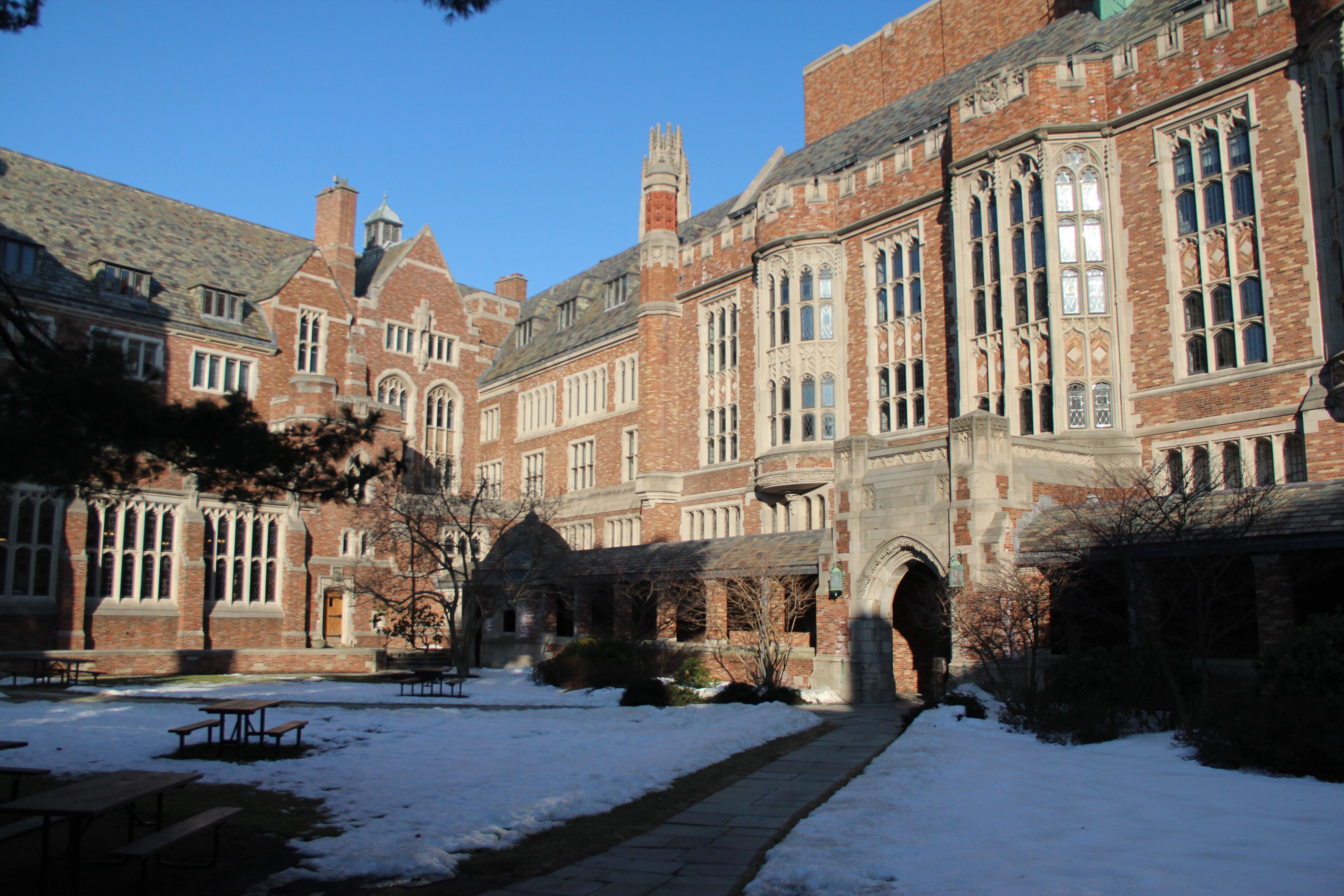We—women, LGBTQ graduate students, and graduate students of color at Yale University—write to share our concerns about union organizing practices, as well as our suggestions for improvement. We write with a shared recognition of the powerful work this union has done over the last two decades to support marginalized university employees and New Haven residents. We note, for example, the union’s successful prison divestment campaign in 2006 and GESO’s ongoing campaign to create more jobs for those who reside in this city. The union’s work has long been supported by the labor of women, LGBTQ folk, and people of color within and beyond the university. We have great respect and gratitude for this labor. Although our experiences and engagements with the union vary widely, and this letter does not attempt to speak for all of us, we write as LGBTQ graduate students, women, and graduate students of color with a shared commitment to the work this organization can do. We believe that if done seriously, centering the critiques of underrepresented graduate students will assist this organization in becoming the stronghold for equity it needs to be.
We are concerned that while the union has committed to supporting underrepresented students and faculty in its racial and gender equity campaign, its organizing practices fundamentally deny the different ways in which we move through Yale, including the varied political commitments we make, the unique forms of labor we perform as teachers and members of our academic communities, and the many forms of harassment and devaluation we daily experience that exhaust many of us emotionally, mentally, and physically. We emphasize here that these organizing issues are structural, not isolated instances that can be blamed on individual organizers.
Here are some of the most troubling behaviors we see encouraged by union leadership and practiced across the organization:
- Using student schedules to force meetings outside of our classes, in our offices, and in our homes.
- Following students to their homes or next location and using physical force to continue speaking to them.
- Gossiping in organizing meetings about specific individuals, describing personal choices, lifestyles, and conversations in reductive and/or disparaging terms.
- Role-playing, in which organizers mimic “difficult” union members who are not present in order to better circumvent our demands or critiques.
- Manipulating students and our colleagues with personal information about our lives, relationships, and assumed political commitments.
- Lack of recognition of other forms of political being and acting in the university, including care-work for oneself or loved ones; or co-optation of other political efforts without sustained conversation about how best to support that work.
- Prioritization of individual meetings, sometimes where the union member is outnumbered by organizers, rather than town halls.
- Lack of transparency about union structure, particularly regarding the Steering Committee’s meetings.
- “State of emergency” rhetoric, in which organizers are pressured to quickly collect numbers at whatever cost.
Tactics targeting students outside of their classrooms, in their offices, their apartments and dorm rooms are invasive regardless of how we move through the university. However, this is particularly violent when directed towards graduate students of color, women, and LGBTQ individuals. This university is a space where our bodies were not meant to be, where our bodies continue to be viewed with suspicion, hostility, or dismissal, and where we are still fighting to claim physical space, stability, and safety for ourselves and our work. The recent hate call made to the Department of African American Studies was a visceral reminder that we cannot take our physical space, safety, or belonging for granted. We out here, and we been here…but our existence is still precarious and ephemeral. GESO must acknowledge the particular violence it reinscribes when it refuses to support our need to walk, work, and rest in our community without further harassment.
Organizing strategies that mobilize personal information are likewise particularly oppressive and demeaning when targeted at LGBTQ folk, women, and people of color. It is absolutely unacceptable that organizers are encouraged to make assumptions about the political commitments of underrepresented graduate students and even mimic us in organizing meetings. This kind of reductive and glib adoption of our concerns and our personhood violently dismisses embodied difference; like the blackface, brownface, yellowface, redface, misogynist and transphobic costumes GESO has joined student organizers in protesting, these tactics violently erase the histories we carry in our bodies and what this deep embodiment means for how we experience and understand our political and academic work in this university.
The union’s hierarchical and opaque structure, its state of emergency rhetoric, and the constant pressure it puts on organizers to report back with numbers all direct significant energy towards subduing critique and suggestions for improvement. This structurally undermines the ability of members like ourselves to make demands for better inclusion of women, people of color, and LGBTQ individuals: in a crunched timeframe, our concerns are seen as secondary and impractical. This structure also hinders organizers who might want to respond to member concerns but have limited autonomy to do so, placing undue strain on collegial relationships and sometimes making departments more hostile environments for both members and organizers.
These tactics structurally compel organizers to dismiss other forms of political work (including the work of rethinking organizing practices) as less radical or urgent. Underrepresented graduate student organizers and members are pressured to commit time and labor when we are often already performing significant and mostly unseen service work as teachers and department members. This further devalues and erases our many forms of labor. Moreover, in emphasizing union work as the most radical and urgent form of politics, GESO underestimates the importance of our academic work—work that can be compromised when we devote time to the union; work in fields of race, gender, and sexuality studies that is often already hindered by a lack of institutional resources and support; work that will be seen and assessed as the primary, if not sole, measure of our value; and work that will be subject to extra scrutiny because we are women, people of color, and LGBTQ identified.
These organizing tactics are disempowering for all of us, union organizers and members alike, and they constitute a particular disrespect and violence towards underrepresented graduate students. In the spirit of the activism currently happening on campus, and recognizing that we are far from the first to bring forward these concerns, we ask that union leadership immediately devote time to rethinking its organizing practices in order to reduce harm and oppression within GESO, and that it present a plan to its members in the coming months. As the task of critiquing and educating often falls on us, we strongly suggest that GESO hire an external adviser to suggest, supervise, and oversee changes. It is possible that the only solution to the problems we have highlighted here will be to establish greater financial and structural autonomy from UNITE HERE. We recognize that much of GESO’s leadership is comprised of UNITE HERE employees and suspect that our union’s organizing culture is laid out by them; yet we do not believe these individuals should shoulder the burden of responsibility, given recent critiques of this larger organization.[1] The way forward will likely require re-imagining even more radically what form our shared work must take. We believe that this undertaking will produce a stronger, healthier union—one better able to support underrepresented students and faculty in this institution—and that this is a crucial step in our fight for recognition.
In solidarity,
Graduate Students of Color, LGBTQ Graduate Students, Women, and Allies at Yale University
To add your signature, please follow this link.
[1] Please see: Sean Abbott-Klafter, Lohl Berning, and Tenaya Lafore, “An Open Letter to All Those Concerned about the Labor Movement,” 2009, and Ned Resnikoff, “When the Union’s the Boss,” 2013. Thanks to Kaneesha Parsard for directing attention to these sources, and for her feedback on an earlier draft of this letter.

